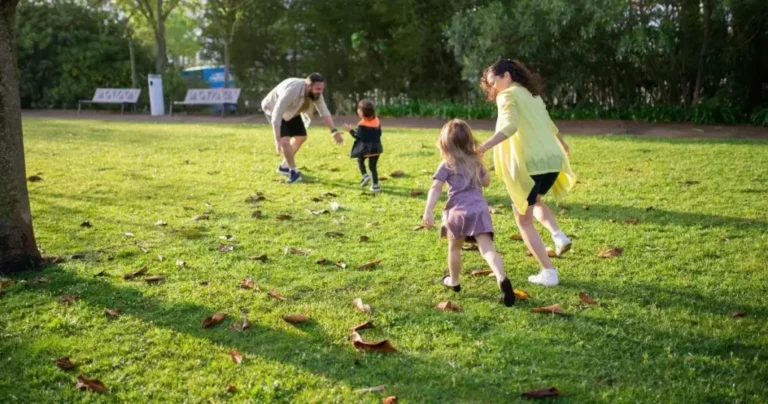Baby Advice: Expert Tips for New Parents

Welcoming a new baby is an amazing journey filled with joy, challenges, and deep love. It’s a complex world of parenthood that needs expert advice and support. This guide offers key tips to help you confidently support your child’s growth.
Good parenting means understanding that every family is different. While there’s no one-size-fits-all approach, expert advice can help a lot. Our tips will give you practical ways to create a loving space for your newborn.
Getting advice from experienced parents can ease your worries and teach you important skills. This guide covers essential topics like safety and understanding your baby’s growth. It’s your guide to early childhood care.
Baby Advice: Expert Tips for New Parents
Essential Preparation Tips Before Your Baby Arrives
Welcoming a newborn is an exciting journey for first time parents. Preparing in advance can help reduce stress and ensure you’re ready for your little one’s arrival. Newborn care essentials require careful planning and thoughtful consideration.
Creating a Safe Nursery Environment
Your baby’s first space needs careful attention to safety and comfort. Baby care tips recommend several key steps for nursery preparation:
- Install outlet covers and secure furniture to walls
- Choose a firm, approved crib mattress
- Maintain comfortable room temperature between 68-72°F
- Ensure good air circulation and minimal noise
Building Your Baby Emergency Kit
Preparedness is crucial for new parents. An emergency kit should include essential items to handle unexpected situations.
| Category | Essential Items |
|---|---|
| Medical Supplies | Baby thermometer, infant pain reliever, nail clippers |
| Hygiene | Alcohol wipes, hand sanitizer, extra diapers |
| Safety | First aid kit, emergency contact list, insurance information |
Must-Have Items for Your Baby Registry
Selecting the right items for your baby registry can feel overwhelming. Focus on practical newborn care essentials that provide real value:
- Versatile clothing in multiple sizes
- Reliable car seat
- Comfortable baby carrier
- Feeding accessories
- Diaper changing station
Pro tip: Consult experienced parents or pediatric professionals when finalizing your registry to ensure you’re fully prepared.

Understanding Your Newborn’s Basic Needs
Raising a newborn is an exciting journey filled with unique challenges. As a new parent, it’s crucial to understand your baby’s basic needs. This helps create a nurturing environment for your infant.
Your newborn communicates in several ways. It’s important to recognize these cues. Babies usually show their needs through:
- Crying
- Facial expressions
- Body movements
- Hunger cues
Understanding these communication methods is key. Your baby depends on you for comfort, nutrition, and safety.
| Basic Need | Description | Frequency |
|---|---|---|
| Feeding | Breast milk or formula every 2-3 hours | 8-12 times daily |
| Sleep | Multiple short sleep cycles | 14-17 hours daily |
| Diaper Changes | Clean and dry environment | 6-10 times per day |
Patience and attentiveness are your greatest tools in understanding and responding to your newborn’s needs. Every baby is unique, and learning their individual patterns takes time and practice.
Remember, bonding happens through consistent care, gentle touch, and responsive interactions. Your calm and loving approach will help your newborn feel secure and loved during these crucial early weeks.
Fundamentals of Good Parenting: Building Strong Foundations
Parenting is a journey that needs careful planning. It’s about finding the right balance between rules and freedom. Good parenting means knowing your child’s needs and guiding them with love and consistency.
For a child to grow well, they need a safe and supportive place to learn. The way you parent greatly affects their happiness and growth.
Creating Consistent Daily Routines
Having set routines makes kids feel secure. It’s important to:
- Stick to a meal schedule
- Make sure there’s time for play and learning
Developing Healthy Sleep Habits
Helping your child sleep well is key. Here are some tips:
- Start a calming bedtime routine
- Keep the sleep area the same every night
- Try gentle ways to help them learn to sleep
| Age Group | Recommended Sleep Hours | Key Considerations |
|---|---|---|
| Newborns (0-3 months) | 14-17 hours | Frequent short sleep cycles |
| Infants (4-11 months) | 12-15 hours | Establishing consistent nap routines |
Establishing Feeding Schedules
Having a feeding plan is good for your baby’s health. Responsive feeding means listening to your baby’s hunger signals while keeping a routine.
Good parenting means being flexible, patient, and understanding. Every child is different, and your parenting style will change as you learn and grow together.
Navigating the First Month: Survival Strategies
The first month of being a parent is full of ups and downs. You’ll face sleepless nights, unexpected challenges, and moments of pure joy. To succeed, you need patience, teamwork, and practical strategies.
Here are some key tips for surviving the first month:
- Prioritize sleep whenever possible – even short 20-minute naps can help restore energy
- Share nighttime responsibilities between partners to prevent burnout
- Accept help from family and friends without feeling guilty
- Create a flexible daily routine that accommodates your newborn’s unpredictable schedule
For new mothers, focus on your physical recovery while bonding with your baby. New dads, actively participate in childcare and offer emotional support. Practical tips include keeping open communication about your needs and feelings.
Mental health is crucial during this time. If you’re struggling with postpartum emotions or feeling overwhelmed, seek professional help.
- Join parent support groups
- Schedule regular check-ins with your partner
- Practice self-compassion
- Develop realistic expectations about parenthood
Your main goal in the first month is to survive and connect. Embrace imperfection, cherish small moments, and trust your instincts. Every parent’s journey is unique, and you’re doing an amazing job.
Baby Development Milestones: What to Expect
Understanding your baby’s growth is key for parents. Every baby grows at their own pace, making their journey unique and exciting.
Tracking your baby’s growth helps you see their potential. It also shows if they need extra help in some areas.
Physical Growth Indicators
Physical growth is a big part of baby milestones. In the first year, babies go through amazing changes:
- Birth to 3 months: Increased head control and muscle strength
- 4 to 6 months: Rolling over and sitting with support
- 7 to 9 months: Crawling and potential first steps
- 10 to 12 months: Walking independently
Cognitive Development Signs
Cognitive growth shows your baby’s learning abilities. Look out for these signs of emotional intelligence and problem-solving:
- Responding to sounds and familiar voices
- Exploring objects through touch and mouth
- Understanding simple commands
- Demonstrating curiosity about surroundings
Social and Emotional Progress
Social and emotional growth is vital for your baby. Key milestones include:
- Smiling responsively
- Recognizing primary caregivers
- Showing preferences and basic emotions
- Engaging in simple social games like peek-a-boo
Remember, every child develops differently. Consult your pediatrician if you have specific concerns about your baby’s developmental progress.
Essential Baby Care Techniques
Learning how to care for a newborn is key for new parents. It takes patience, knowledge, and gentle methods to keep your baby happy and healthy.
Diaper changing is a skill you’ll get good at fast. Make sure you have a clean, safe spot and all your supplies ready. Here are some important tips for baby health:
- Wash your hands well before you start
- Use soft, gentle wipes
- Apply cream to prevent diaper rash
- Be careful and pat dry the area
Bathing your newborn needs extra care. Gentle handling is key to successful baby care. Get everything ready and keep the water warm:
- Use water that’s not too hot (around 100°F)
- Support your baby’s head and neck
- Keep baths short (5-10 minutes)
- Use soft, fragrance-free soap
Knowing the basics of newborn care helps avoid health issues. Here’s a quick guide for keeping your baby well:
| Concern | Prevention | Treatment |
|---|---|---|
| Diaper Rash | Change diapers often | Use zinc oxide cream |
| Cradle Cap | Massage the scalp gently | Use mild baby shampoo |
| Colic | Feed properly | Try gentle stomach massage |
Every baby is different. Trust your instincts, stay calm, and ask your pediatrician if you’re unsure about caring for your newborn.
Building Strong Parent-Child Bonds
Creating lasting connections with your child is more than just basic care. It’s key for their emotional intelligence and future relationships. The early years are vital for building deep, meaningful bonds. These bonds shape your child’s understanding of love and trust.
Quality Time Activities
Meaningful interactions strengthen your emotional bond. Here are some activities to boost parent-child bonding:
- Reading together daily
- Singing interactive songs
- Playing simple games
- Exploring nature walks
- Creating art projects
Positive Communication Methods
Effective communication is more than just words. Your tone, facial expressions, and body language matter a lot. Practice being responsive to make your child feel heard and valued.
| Communication Technique | Impact on Child |
|---|---|
| Maintain eye contact | Builds trust and attention |
| Use gentle voice tones | Creates emotional safety |
| Validate feelings | Develops emotional intelligence |
Creating Emotional Connections
Family values are passed on through consistent, caring actions. Emotional connections grow through patience, understanding, and unconditional love. Every moment is a chance to build a strong bond. This bond supports your child’s emotional well-being for life.
Health and Safety Guidelines for New Parents
Keeping your newborn safe is a big job. As new parents, knowing the best baby health tips is key. Experts say it’s important to cover all bases in caring for your baby.
Important baby care tips include:
- Medical Monitoring: Schedule regular pediatric check-ups
- Keep vaccination records current
- Learn to recognize potential health warning signs
- Establish a relationship with a trusted pediatrician
Home safety is also crucial. Make your home safe by taking these steps:
- Install safety gates on stairs
- Cover electrical outlets
- Secure furniture to prevent tipping
- Use cordless window coverings
Safe sleep is essential for your baby. Always put them on their back, use a firm mattress, and avoid soft bedding. When traveling, make sure the car seat is installed correctly and follow the manufacturer’s instructions.
Keeping your home clean helps prevent sickness. Wash hands often, sanitize surfaces, and avoid germs. Your efforts can greatly reduce health risks for your baby.
Balancing Parenthood and Personal Well-being
Becoming a parent changes your life in big ways. It affects your work-life balance and how you see yourself. To handle this change, you need a plan, kindness to yourself, and a commitment to stay well while being a parent.
Self-Care Strategies for New Parents
Self-care is not selfish; it’s crucial. Your family values and how you parent impact your ability to care for your family. Here are some simple self-care tips:
- Schedule time just for you
- Try short meditation or relaxation
- Stay active physically
- Keep in touch with friends and family
Managing Work-Life Integration
Mixing work and parenting needs creativity and flexibility. Setting clear boundaries helps you create lasting routines.
| Strategy | Benefits |
|---|---|
| Flexible Work Hours | More time with family and work |
| Remote Work Options | Less stress from commuting |
| Clear Communication | Understanding at work |
Maintaining Relationships
Being a parent can put a strain on your relationships. Intentional communication and shared moments help keep your bond strong with your partner, friends, and family.
- Plan regular date nights
- Share parenting duties
- Accept help from others
Conclusion
Starting your journey as a parent is an amazing adventure. It’s filled with joy, challenges, and growth. This guide offers expert tips to help you in the early stages of raising your child.
Every parent’s journey is different. While advice from experts is helpful, your love and intuition are the most powerful. Trust yourself and be open to learning. The best parents are curious, adaptable, and dedicated to their child’s needs.
As you explore this new chapter, get support from doctors and connect with other parents. Remember, your own experiences shape your parenting style. Enjoy the ups and downs of raising your child.
Your hard work in being a caring parent will help your child succeed. Stay patient and loving. Every day is a chance to learn and connect with your child.
FAQ
How can I create a safe nursery environment for my newborn?
To make a safe nursery, use a firm mattress that fits the crib well. Install baby-proofing devices like outlet covers.
Use cordless window treatments and keep the room temperature between 68-72°F. Keep the crib free of pillows, blankets, and stuffed animals to avoid suffocation risks.
What are the most important items for my baby emergency kit?
Your baby emergency kit should have a digital thermometer and infant acetaminophen. Add a nasal aspirator, sterile saline drops, bandages, and antiseptic wipes. Include infant nail clippers and a first aid manual.
Remember to include your pediatrician’s contact information and important medical documents. Don’t forget a small flashlight, extra batteries, and a portable phone charger for emergencies.
How often should I feed my newborn?
Newborns need to eat every 2-3 hours, or 8-12 times in 24 hours. Breastfed babies eat for 10-15 minutes per breast. Formula-fed babies eat 2-3 ounces per feeding.
Watch for hunger cues like rooting, sucking motions, and hand-to-mouth movements. This ensures your baby gets enough to eat.
How can I establish a consistent sleep routine for my baby?
Start a calming bedtime routine with consistent timing. This includes a warm bath, gentle massage, and dim lights. Use white noise and keep the room comfortable.
Put your baby to bed drowsy but awake. Develop a predictable sequence of events for sleep. Be patient as your baby learns to self-soothe.
What are the signs of healthy physical development in my baby’s first month?
In the first month, look for steady weight gain (5-7 ounces per week). Check for increased head control and ability to focus on faces. Babies should respond to sounds and bring hands to mouth.
They should also make jerky arm and leg movements. Babies usually double their birth weight by 4-5 months. They can lift their head briefly when on their tummy.
How can I bond with my newborn?
Bonding happens through loving interactions. Practice skin-to-skin contact and talk to your baby. Maintain eye contact and respond to their needs.
Engage in gentle touch like massage. Breastfeeding and bottle-feeding are great for bonding. Read to your baby, even if they don’t understand the words, to develop emotional connection.
What should I do if my baby seems to have colic?
Colic can be tough, but try gentle rocking, swaddling, and white noise. Some find relief in warm baths or gentle stomach massages. Holding them in a side or stomach position while awake can also help.
Consider probiotics after talking to your pediatrician. Avoid foods that might upset a breastfed baby’s stomach.
How can new parents manage sleep deprivation?
Take turns with your partner for nighttime feedings. Nap when the baby naps. Accept help from family and friends and prioritize self-care.
Consider pumping milk for your partner to help with feedings. Aim for short rest periods, even if they’re not full nights. Stay hydrated, eat nutritious foods, and ask for support when needed.
When should I start introducing solid foods?
Most pediatricians suggest starting solid foods around 6 months. Look for signs of readiness like sitting up independently and showing interest in food.
Start with single-ingredient purées like rice cereal, sweet potato, or banana. Introduce new foods one at a time and wait a few days to watch for allergic reactions.
How can I keep my baby safe from common illnesses?
Maintain good hygiene by washing hands frequently. Keep your baby away from sick people and ensure everyone handling them is vaccinated. Stay up-to-date on recommended immunizations.
Breastfeeding provides additional antibodies. Keep your home clean to reduce germ exposure. Always consult your pediatrician about health concerns and preventive measures.







One Comment
Comments are closed.